Guinea-Bissau
Guinea-Bissau President Umaru Sissoco Embalo visits the scene of the attack on him in the attempted coup that left 11 people dead, and calls on the people to "stop the provocation" and "trust the investigation committee" and the justice system.
The army has launched a vast operation, including at the headquarters of the government according to a military official, to find the commanders and protagonists of the coup attempt.
Heavily armed men on Tuesday afternoon surrounded government buildings in the capital Bissau where Embalo and his prime minister were believed to be attending a cabinet meeting.
Embalo, 49, later told reporters he had been unharmed during a five-hour gun battle, which he described as a plot to wipe out the government in Guinea-Bissau, one of Africa's most unstable countries.
AFP journalists reported hearing sustained gunfire, and the president said several people were killed.
"The government mourns... the loss of 11 valiant men during the attack. Eleven victims -- soldiers and paramilitaries, four civilians including a top agriculture ministry official and his driver," government spokesman Fernando Vaz said Wednesday.
On Wednesday, life was slowly returning to the streets of Bissau as shops and banks reopened, according to AFP correspondents.
Soldiers were patrolling the streets, however, and also blocked access to the Palace of Government complex where the attack took place.
- 'Pulled Guinea-Bissau backwards' -
Noelho Barboza, a 27-year-old resident of the capital, said the failed coup was the last thing his country needed.
"These events have pulled Guinea-Bissau backwards five years," he said.
"There'll soon no longer be any investor confidence" in the country at all.
The military source said a commission of enquiry had launched a vast dragnet, adding that military intelligence agents were gathering information at government headquarters.
Guinea-Bissau, a coastal state of around two million people lying south of Senegal, has suffered four military coups since independence from Portugal in 1974, its most recent in 2012.
In 2014, the country vowed to return to democracy, but it has enjoyed little stability since and the armed forces wield substantial clout.
At a news conference on Tuesday, Embalo said that assailants had tried to "kill the president of the republic and the entire cabinet".
"The attackers could have spoken to me before these bloody events that have seriously injured many and claimed lives," he added, appearing calm.
- 'Cocktail of divergences' -
The identity and motives of the assailants remain unclear.
But Embalo said the attack was linked to decisions he had taken "to fight drug trafficking and corruption".
Guinea-Bissau suffers from endemic corruption, and is known as a hub for cocaine trafficking between Latin America and Europe.
Vincent Foucher of France's CNRS research centre said Embalo, a former general, may have sparked anger with moves to assert greater authority over the army.
But Senegalese analyst Babacar Justin Ndiaye spoke of a "cocktail of divergences" at the top of the leadership, notably between the president and his prime minister, Nuno Gomes Nabiam.
Ndiaye also said President Embalo was at odds with parliament over the sharing of oil resources at the border with Senegal.
Both the African Union and the Economic Community of West African States (ECOWAS), of which Guinea-Bissau is a member, on Tuesday condemned what they termed an "attempted coup".
They were joined on Wednesday by France, which slammed "the coup attempt" and voiced "respect for the constitutional order and... support for the democratic institutions".
The events sparked fear that the country would join the ranks of other West African governments that have fallen to military coups recently.
In Mali, the army seized power in 2020. Guinea's military followed suit in September last year, ousting elected president Alpha Conde.
Then on January 24, Burkina Faso's army also announced it had deposed President Roch Marc Christian Kabore and taken control of the country.




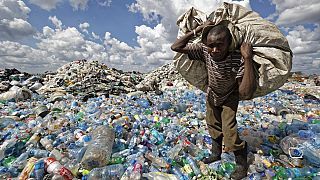
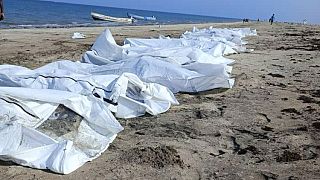
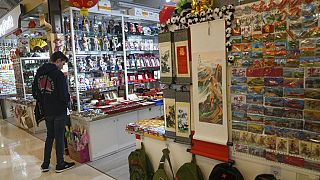
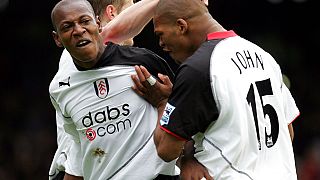
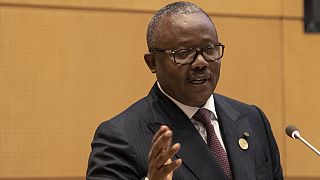
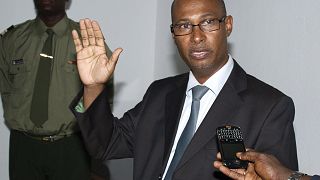
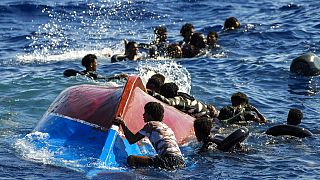
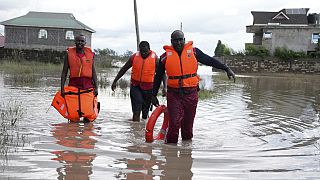
02:47
Unraveling the political threads: Inside South Africa's Complex Election Landscape
01:19
Haiti: transitional council members announced
01:57
South Sudanese parties adopt code of conduct ahead of December elections
01:07
Mali's junta bans media from reporting on political activities
00:51
Mali bans political party activities as calls for elections grow
Go to video
Togo bans protests against arrest of opposition activists, constitutional reform